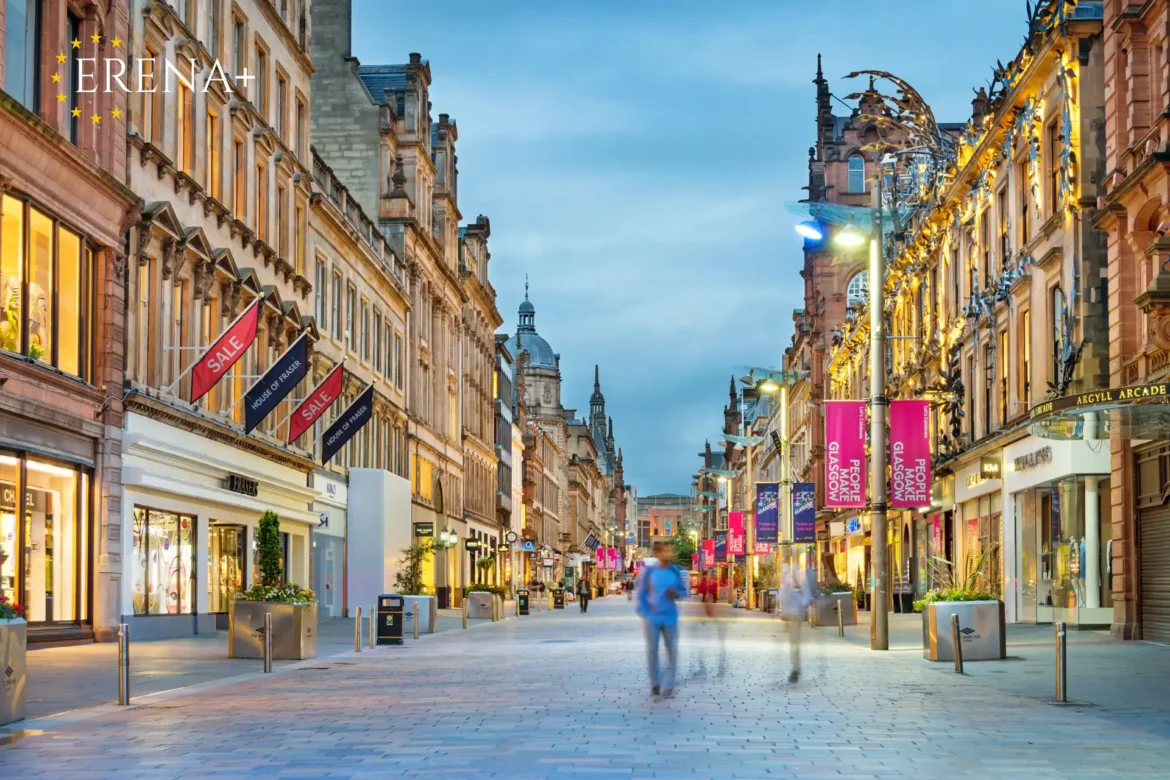Glasgow, Scotland’s largest city, has become one of the most sought-after urban hubs in the UK. Known for its rich culture, vibrant arts scene, and booming economy, Glasgow is also experiencing a dramatic rise in rental prices. This surge is transforming the city’s rental landscape and having profound impacts on residents and neighborhoods. Let’s dive into the factors driving rental increases, the effects on tenants, and the broader consequences for Glasgow.
1. The Surge in Rent Prices
Glasgow’s rental market has witnessed a significant price increase in recent years. By the end of 2023, the average rent for a one-bedroom flat had reached approximately £750 per month, with two-bedroom flats averaging £1,000. This surge represents a sharp climb compared to previous years, and experts suggest that the upward trend may continue in the coming months.
2. Factors Driving the Increase
Several key factors are fueling Glasgow’s rising rent prices:
a) High Demand and Low Supply
The demand for rental properties in Glasgow has consistently outpaced supply. As the city attracts students, young professionals, and new residents from across the UK and beyond, the competition for available properties has intensified. However, new housing developments have not kept up with the growing population, creating a persistent shortage in rental properties.
b) Economic Pressures
Increased inflation, rising living costs, and higher interest rates are pushing rental prices higher. Many landlords are raising rents to cover their own rising maintenance costs, property taxes, and other economic pressures. This has led to fewer affordable housing options, especially for lower-income renters.
c) Short-Term Lets and Airbnb
The rise of short-term rental platforms like Airbnb has also impacted the availability of long-term rental properties. Landlords are increasingly choosing to rent their properties out as short-term lets, particularly in tourist-heavy areas, which reduces the stock of affordable rental properties.
d) Gentrification and Urban Regeneration
Areas once considered less desirable, such as the East End and Southside, have undergone significant regeneration, attracting new residents and businesses. As these areas become more attractive, rent prices rise, displacing longtime residents and changing the local demographic.
3. Impact on Renters
a) The Affordability Crisis
As rental prices climb, many residents find themselves priced out of their homes. Students, young professionals, and families on lower incomes are particularly affected, as they struggle to secure affordable housing. Renters are increasingly forced to move to less convenient or lower-quality properties, often in less central locations.
b) Longer Commutes and Increased Costs
With rising rent prices in central Glasgow, many people are moving to the city’s outer suburbs or nearby towns. This shift has led to longer commutes, increasing transportation costs and reducing the time residents can spend on leisure or work.
c) Housing Insecurity
Landlords are increasingly raising rents or selling properties, leading to housing insecurity for many renters. Tenants on fixed-term contracts face uncertainty, as they may have to move or pay significantly higher rent when their lease expires. This instability is creating stress for renters who are forced to relocate frequently.
4. Changing Neighborhood Demographics
The rise in rent prices is shifting Glasgow’s demographics. Working-class families and long-term residents are being displaced from areas where they have lived for generations. In their place, more affluent residents are moving in, contributing to the process of gentrification.
This transformation is not limited to housing. Local businesses, including shops and restaurants, are adapting to cater to a wealthier clientele, which may price out existing residents. This trend is leading to a more exclusive cityscape, where once-affordable neighborhoods become unaffordable for many.
5. The Broader Consequences for Glasgow
a) Pressure on Public Services
The growing affordability crisis is also affecting public services. Local authorities are under pressure to provide affordable housing and social services for displaced residents. This situation is creating a ripple effect across the city, with increased demand for social housing and more pressure on transportation systems and community support networks.
b) Opportunities for Investment and Development
On the flip side, the rising demand for rental properties has attracted significant investment in Glasgow’s real estate sector. Developers are building new residential projects to meet demand, with a focus on luxury apartments and student accommodation. While this investment is important, it also means that many of the new properties are priced out of reach for the average renter.
6. Looking Forward: Solutions and Challenges
As Glasgow’s rental market continues to evolve, the city faces both challenges and opportunities. To address the affordability crisis, developers, policymakers, and local authorities will need to collaborate. Solutions could include rent controls, the construction of more affordable housing, and support for renters facing financial hardship.
The future of Glasgow’s rental market hinges on finding a balance between growth, affordability, and community needs. Without thoughtful action, the city risks becoming less accessible for many of its residents, changing the character of neighborhoods and the quality of life for those who call Glasgow home.
Conclusion
The rise in rental prices in Glasgow is a multifaceted issue with significant consequences for both renters and the city as a whole. As demand continues to outstrip supply, renters are facing increasing financial strain, while developers and policymakers will need to find ways to create affordable housing solutions. As Glasgow continues to grow, it will be essential for all stakeholders to work together to ensure that the city remains a place where people from all walks of life can live and thrive.

